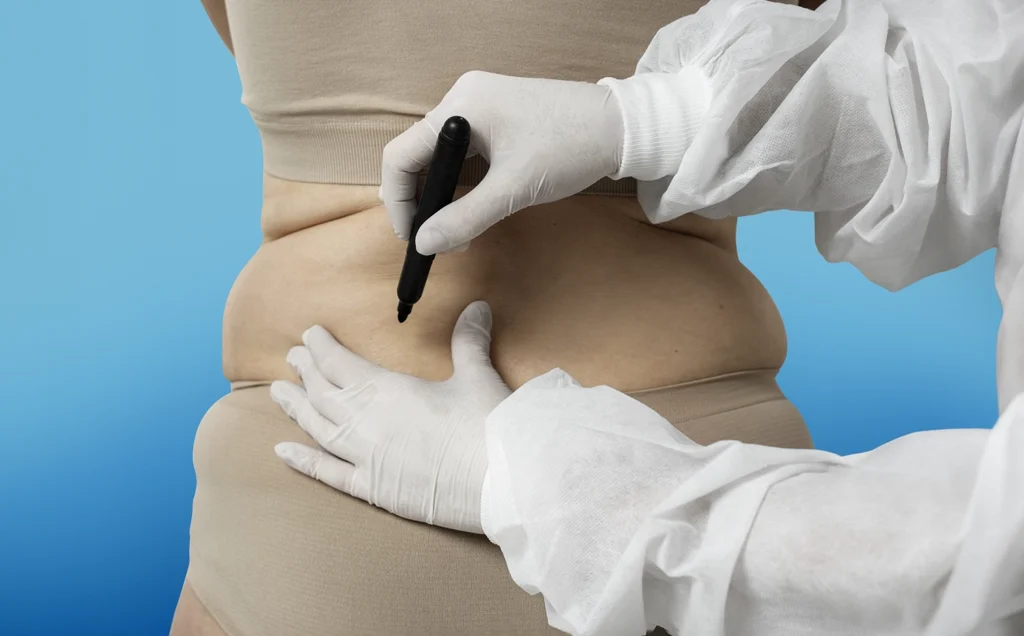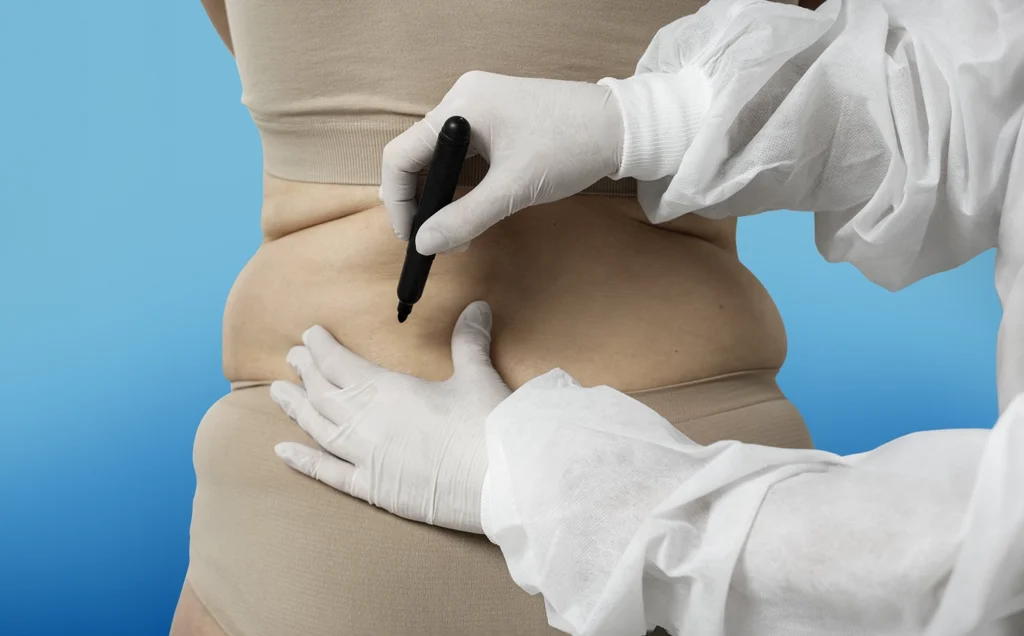Bariatric Surgery Revision in Turkey
If you’ve previously had weight-loss surgery but have not achieved adequate weight loss, Revision Surgery in Turkey may be a great option!
Bariatric surgeries are proven methods to lose weight although there is still a rare chance for insufficient weight loss, recurrence of obesity, or surgical failures. In that case, bariatric revision surgeries may help you with further weight loss and correction.
Commonly performed bariatric revision is conversion to bypass surgery after a sleeve. This method has the least surgical risks and most benefits when gastric sleeve fails to achieve patients’ goals.
In Turkey, we perform revisional surgeries ranging from small adjustments such as reducing pouch size to altering existing surgery results to another method.
Please fill out the form to learn if you are a good candidate for weight loss surgery!
We are committed to protecting your privacy.
Reasons Why You Might Need a Bariatric Revision
There can be many reasons why people require revision surgeries.
How Much Does Bariatric Revision Surgery Cost in Turkey?
The average price for bariatric revision surgeries in Turkey is based on the required revision procedure, the doctor’s experience, and the clinic location. Our prices include surgery fees, hotel accommodation, hospitalization, VIP transfer, and medical assistant fees.
Revision Type | Revision Price (€) |
Gastric Sleeve Surgery | 3.300-4.400 Euros |
Gastric Bypass Roux‑en‑Y | 4.200-5.300 Euros |

Bariatric Surgery Revision Options
Depending on which bariatric surgery or surgeries you have had, there are different options for the revision.
It is possible to perform bariatric revision after:
- Gastric Bypass Roux-en-Y Surgery
- Gastric Sleeve Surgery
- Adjustable Gastric Band (Lap-Band) Surgery
- Transit Bipartition
Each procedure possesses different solutions when people need further changes. Let’s look at the most performed ones. You can check the revisions by clicking the tabs below.

Gastric Bypass (Roux-en-Y) Revision Surgery
Gastric bypass revision is performed when the surgery leads to unwanted results or fails to accomplish patient goals. There are three different options when your bypass surgery results in unwanted results.
- Gastric sleeve
- Stoma revision
- Conversion to duodenal switch
Who Qualifies for Gastric Bypass Revision Surgery?
According to the research “Conversion of Sleeve Gastrectomy to Roux‑en‑Y Gastric Bypass: Indications, Prevalence, and Safety,” there are two main reasons for gastric bypass revision surgeries.

Gastroesophageal reflux disease (GARD)
When patients experience moderate to severe GARD gastric bypass revision surgery might be needed.
Weight reoccurrence or inadequate weight loss
Patients may experience weight regain or insufficient weight loss following the initial RYGB procedure.

Gastric Sleeve Revision Surgery
Gastric sleeve revision or sleeve gastrectomy revision is done either by repeating the sleeve procedure or accompanied by another bariatric surgery method. Each type of revision aims to address specific issues such as inadequate weight loss or complications like severe acid reflux. The choice of procedure is guided by factors such as the patient’s health status, the results of their previous surgery, and their long-term weight loss goals.
- Secondary gastric sleeve
- Conversion to gastric bypass
- Conversion to duodenal switch
Who Qualifies for Gastric Sleeve Revision Surgery?
Eligibility for revision surgery is determined based on a comprehensive evaluation, including assessments of the patient’s overall health, weight loss history, and the presence of any complications related to the original surgery.
According to “Revision surgery after sleeve gastrectomy: a nationwide study with 10 years of follow-up” people may need a sleeve gastrectomy revision for two main reasons:

Persistence of Obesity or Weight Regain
The most common reason for revision surgery is insufficient weight loss or weight regain after the first sleeve gastrectomy. This holds for about 87% of the revision cases.
Gastroesophageal Reflux Disease (GERD)
GERD represents about 5.2% of cases. Some patients develop or experience worsening GERD symptoms after the initial surgery, leading to the need for a revision procedure.

How Much Does Gastric Sleeve Revision Cost in Turkey?
The average cost for gastric sleeve revision surgery in Turkey is around 3,300 – 4,500 Euros. The surgery fee generally varies depending on the clinic location and the additional services provided.

Adjustable Gastric Band (Lap-Band) Revision Surgery
A gastric band lap surgery should help you lose weight by around 30% within a year or two. But if there is any complications occur or when you cannot achieve your surgery goals the gastric band can be removed or converted into another surgery.
- Removal of the band
- Conversion to sleeve gastrectomy
- Conversion to gastric bypass
Revision Surgery All-Inclusive Package
- Surgeon consultation and physical examination
- All medications administered during surgery and hospital stay
- A 3-night stay at the hospital
- 4 nights of hotel accommodation, including for a companion
- A medical translator fluent in your language
- Transportation between the airport, hotel, and hospital
- Ongoing dietitian support and doctor follow-up after surgery
Frequently Asked Questions
What Makes You Qualified For Bariatric Revision?
There is no specific answer to this question, people may require a revision months after their gastric sleeve surgery or it can also be requested many years later. Usually, it takes a year to see the general results of the gastric sleeve surgery.
When Can You Ask for Bariatric Revision Surgery?
There is no specific answer to this question, people may require a revision months after their gastric sleeve surgery or it can also be requested many years later. Usually, it takes a year to see the general results of the gastric sleeve surgery.
What to Expect During the Recovery of Revision Gastric Sleeve?
Recovery from gastric sleeve revision surgery typically involves a period of hospitalization followed by several weeks of gradual return to normal activities. Patients can expect to experience some pain and discomfort, which can be managed with prescribed medications. A modified diet is usually required, starting with clear liquids and progressing to soft foods and eventually solid foods as tolerated.
Regular follow-up appointments are essential to monitor progress, adjust dietary plans, and ensure proper healing. Adhering to the surgeon’s post-operative care guidelines is crucial for achieving the best outcomes and maintaining long-term weight loss success.
Please fill out the form to learn if you are a good candidate for weight loss surgery!
We are committed to protecting your privacy.



